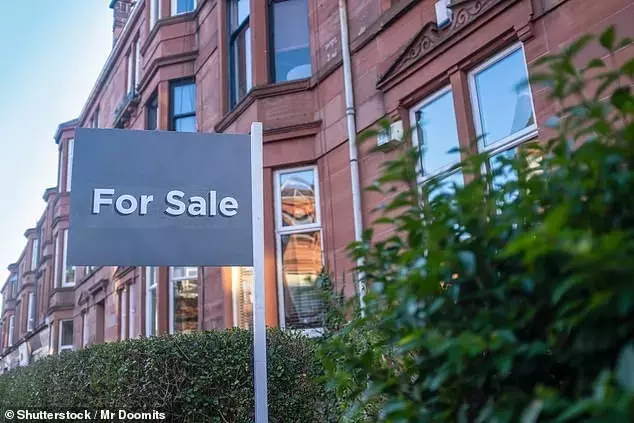
The United Kingdom's housing sector is currently navigating a period of adjustment, characterized by widespread price reductions and a discernible slowdown in sales activity. A substantial portion of residential properties on the market have seen their asking prices lowered, reflecting the growing challenges homeowners face in securing buyers. This trend is further underscored by a notable decrease in the average listed price for new properties over the past month. The prevailing conditions suggest a shift in market dynamics, where purchasers now hold a stronger negotiating position. This situation echoes previous periods of market recalibration, highlighting the sensitivity of property values to economic indicators and buyer confidence.
UK Property Market Sees Widespread Price Adjustments and Extended Selling Times
In a significant development for the British property landscape, approximately one-third of all homes currently listed for sale have undergone price reductions. This substantial proportion underscores the difficulties many homeowners are encountering in a market that is increasingly favoring buyers. Over the course of the most recent month, the typical asking price for a newly introduced property has decreased by a considerable £4,969, bringing the average to £368,740. This 1.3 percent decline contributes to an even larger cumulative drop of £10,777 over the summer months, signaling an unusually pronounced seasonal lull.
Data released by Rightmove, a prominent property portal, reveals that 34 percent of active listings have seen their prices cut since their initial market entry. This figure represents the second-highest level of discounts observed since 2012, trailing only behind the adjustments seen in 2023, a period marked by elevated mortgage interest rates that significantly impacted buyer demand. According to Colleen Babcock, a property expert at Rightmove, sellers who are struggling to find a purchaser are often those who have initially set their prices too ambitiously. She emphasized that discerning buyers are now benefiting from more attractive pricing, with new listings averaging £10,000 less than three months prior. This competitive environment necessitates a strategic approach to pricing to facilitate a swift sale.
The average duration for a property to secure a buyer has extended to 62 days. However, properties that avoid the need for a price reduction typically sell much faster, averaging just 32 days on the market, compared to a lengthy 99 days for those requiring adjustments. Babcock advised sellers to set a realistic price from the outset to enhance their chances of a prompt and successful transaction, noting that swift action on price adjustments is crucial if an initial valuation proves too high.
The current market is definitively tilted towards buyers, marked by a 10 percent increase in available homes compared to the previous year—a level of supply not witnessed in a decade. Despite this, the number of agreed sales has risen by 8 percent year-on-year, indicating that opportunistic buyers are capitalizing on the more favorable conditions. Rightmove characterized July as the most robust month for agreed sales since the post-lockdown surge of 2020. Steve Beercock, an executive director at Beercocks estate agents in Yorkshire & the Humber, confirmed this positive momentum, noting a surge in sales activity in early August. He reiterated the importance of precise initial pricing to mitigate the need for subsequent reductions.
Annually, property values have seen a modest increase of just 0.3 percent. There are indications that the influx of new properties onto the market is beginning to slow, with new listings only 4 percent higher than last year. Should this trend continue, it could alleviate some of the downward pressure on prices. Prospective buyers are therefore encouraged to act decisively when they identify suitable properties. Amy Reynolds, head of sales at Antony Roberts estate agents in Richmond, London, cautioned against excessive hesitation, noting that some well-priced homes remain unsold due to buyers awaiting further price drops. She highlighted that as the traditionally quieter summer period transitions into the busier autumn, delaying a purchase might result in desirable properties being acquired by others.
Recent decisions by the Bank of England to reduce interest rates could potentially lead to slight decreases in mortgage rates, offering some stimulation to the market. However, given the ongoing uncertainty surrounding future rate movements, substantial drops in mortgage costs are not anticipated in the immediate future.
From the perspective of a market observer, the current climate underscores the delicate balance between supply, demand, and economic confidence. While it presents a golden opportunity for savvy buyers to secure more favorable deals, it simultaneously demands a pragmatic approach from sellers. The emphasis on initial pricing accuracy and swift market response highlights the evolving sophistication required in property transactions. This period of recalibration, though challenging for some, ultimately fosters a more sustainable and accessible housing market, laying the groundwork for future stability and growth.
